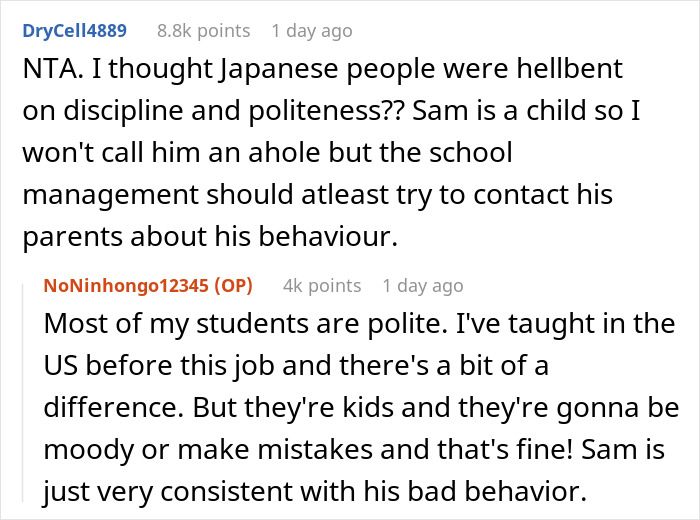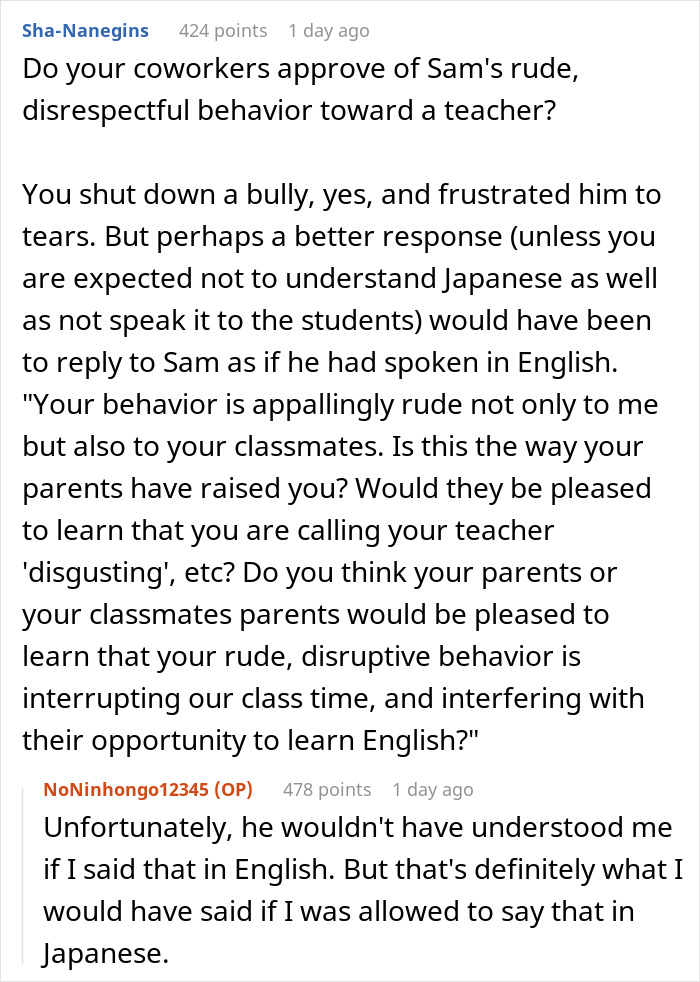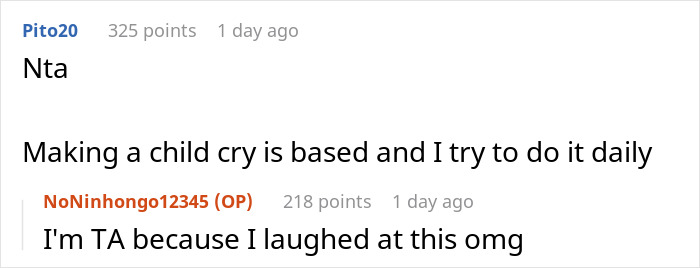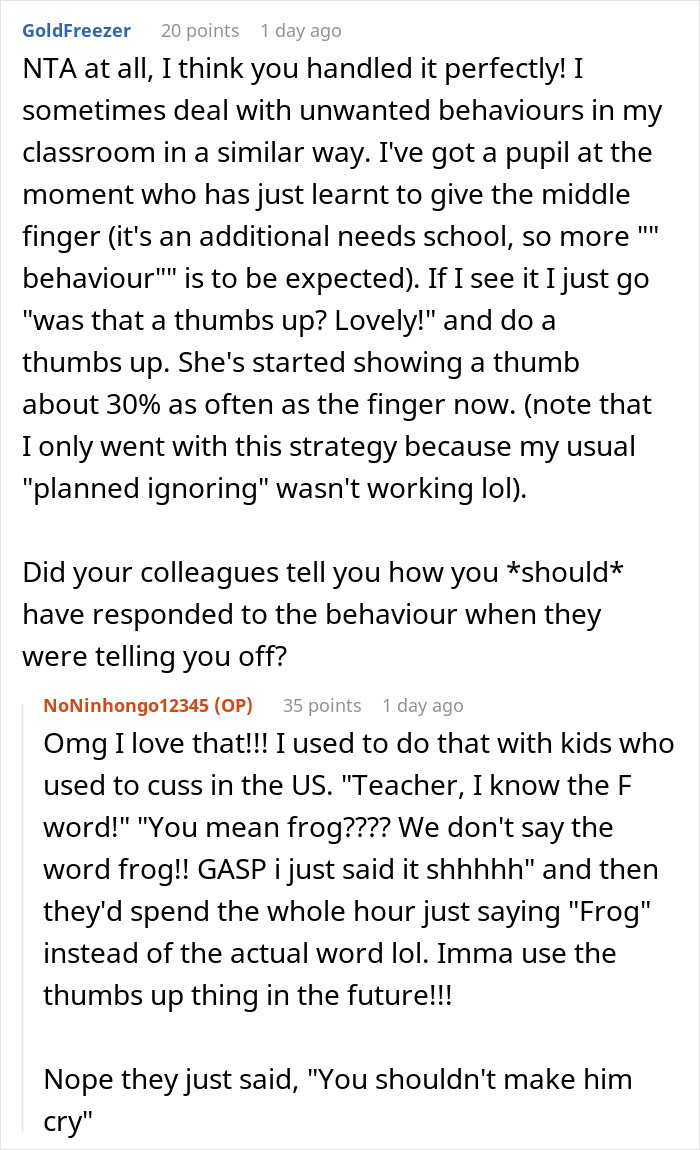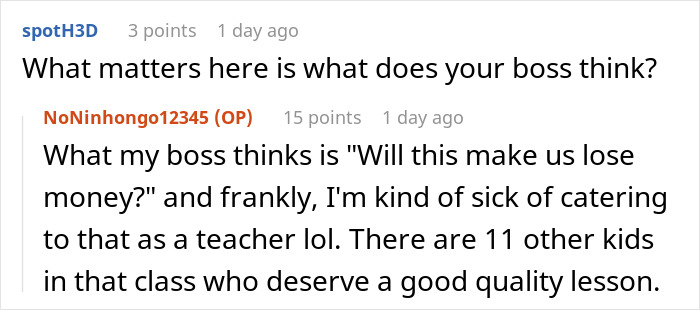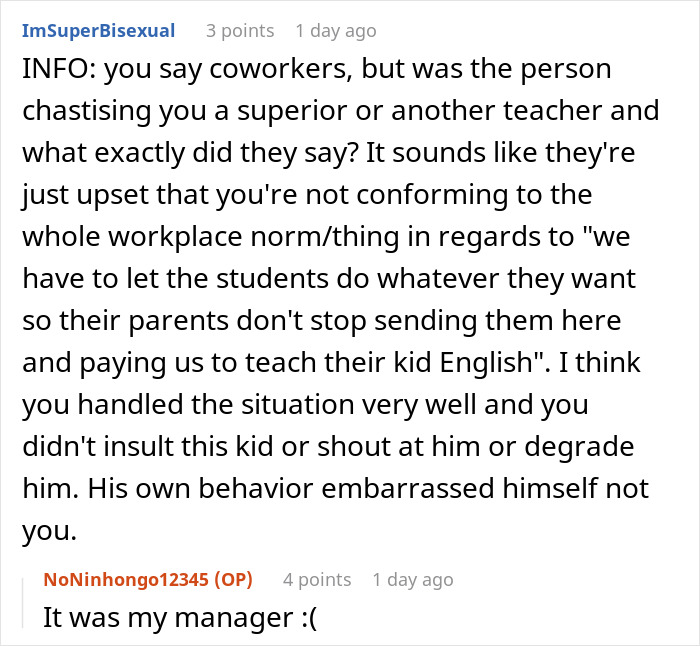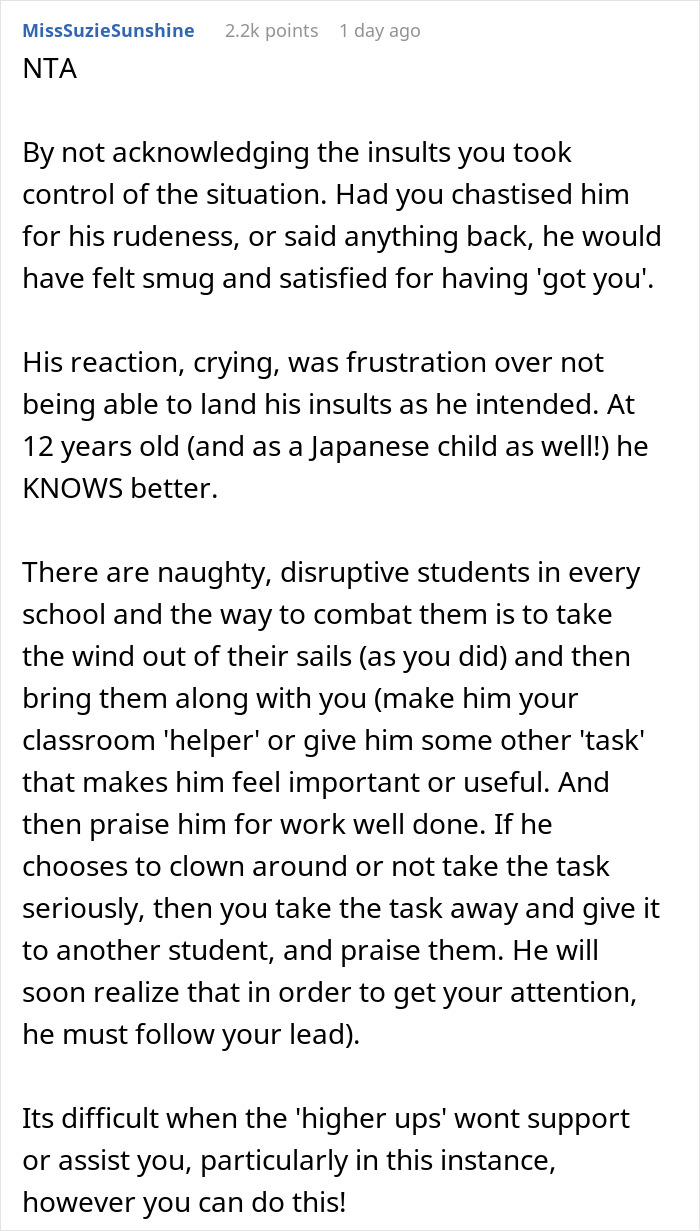Sometimes a teacher receives no help from parents or school administration with a student who interrupts the lessons or makes others uncomfortable and gets to navigate using their skills, experience, and… humor.
This Redditor shared how she addressed a student hurling swear words at her by pretending these were compliments and asked if she was a jerk to do so because the student ended up crying.
More info: Reddit
A teacher who has a lot of experience with goofy kids and loves teaching them still had a problem with one such student

Image credits: Pavel Danilyuk (not the actual photo)
The 12-year-old was disrupting others a lot and making them uncomfortable
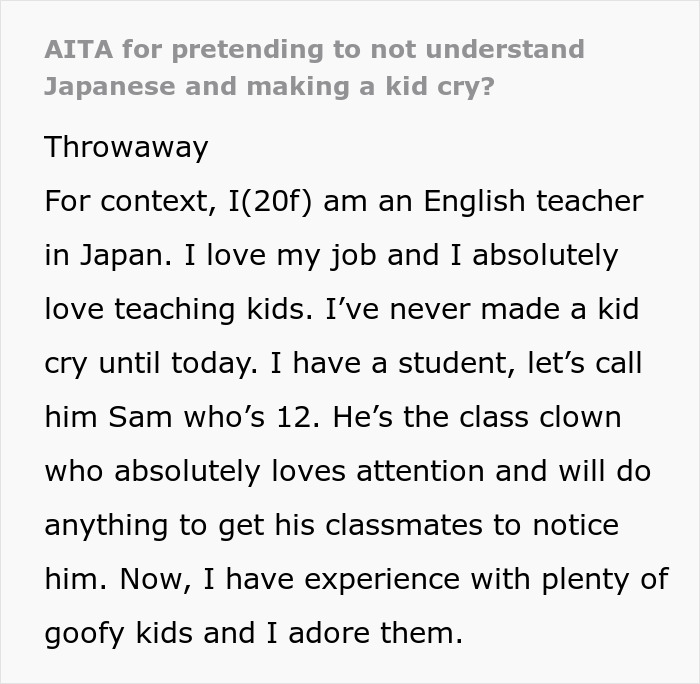
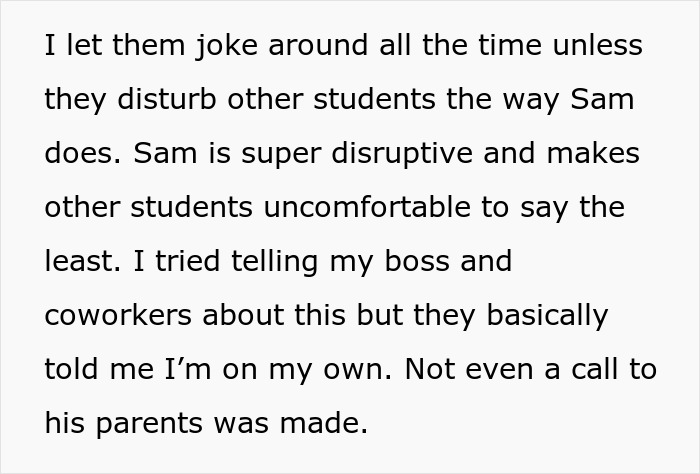
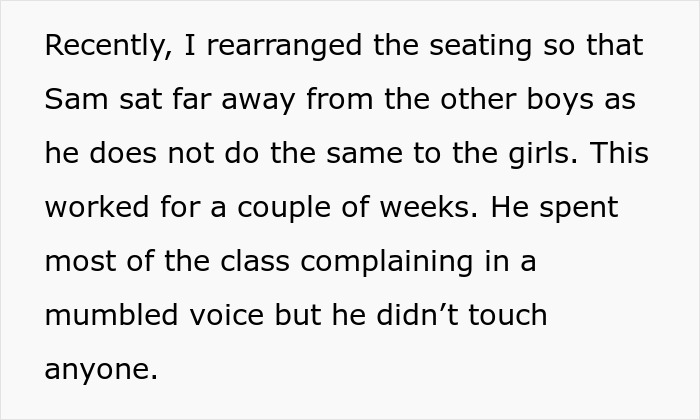
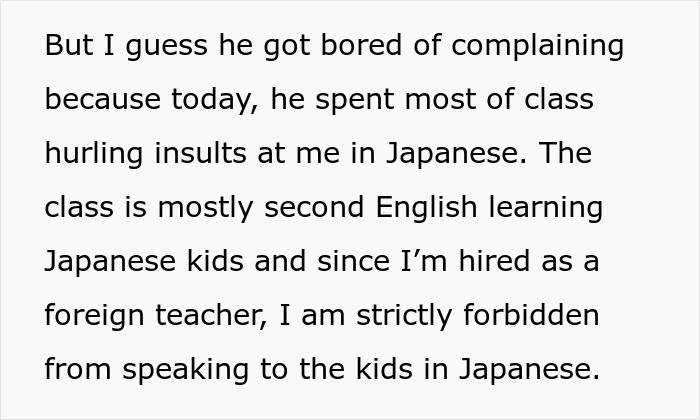
Image credit: u/NoNinhongo12345

Image credits: Norma Mortenson (not the actual photo)


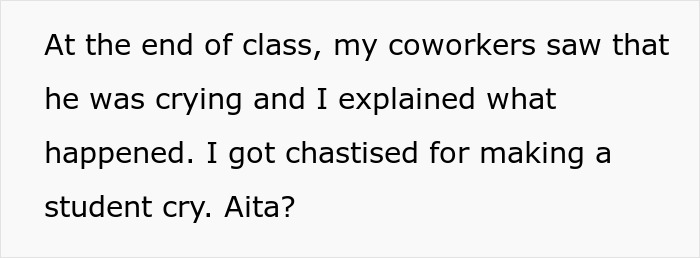







Image credit: u/NoNinhongo12345
Administration let the teacher know she was on her own and didn’t even inform the boy’s parents

Image credits: Leohoho (not the actual photo)
This one time the boy spent most of the class hurling insults at the teacher, so she pretended to not understand them
A woman brought her story to the Reddit AITA community online asking if she was a jerk to pretend she thought the boy’s insults were compliments, which resulted in him bursting into tears.
The woman explained that she is an English teacher who teaches in Japan and loves her job. Even though the woman has a lot of experience with goofy kids and adores them, the 12-year-old boy “Sam” is quite challenging to have in class.
The boy is extremely disruptive and often makes other kids uncomfortable, to say the least. The teacher informed the school administration but was told she was on her own and even the kid’s parents were not informed.
This one time the boy took up a new approach and spent most of the class hurling insults like “disgusting” or “a stupid old lady” at the teacher in Japanese. As a foreign teacher, the woman is strictly forbidden to speak Japanese in the class, so what she did instead was to thank him for the compliments.
The boy kept trying to insult the teacher throughout the class, with her pretending these were compliments, until by the end of the class, the boy got so frustrated he burst into tears. The woman’s coworkers saw the boy was crying and she got chastised after she explained what happened.
The teacher was simply asking the boy what he said and thanking him for the compliments

Image credits: Kampus Production (not the actual photo)
By the end of the class, the boy burst into tears, and the woman got chastised by colleagues for making the kid cry
The woman’s post gathered 7.6k upvotes on Reddit and people judged the woman was not a jerk in this situation, noting that the boy’s reaction and crying was due to frustration over not being able to land the insults as he intended, as the teacher didn’t acknowledge them.
Addressing the difficult behavior of a similar age group as the OP’s students was discussed by Preston Ni for Psychology Today and he listed avoiding getting triggered and giving away one’s power, in addition to not taking such behavior personally, among the tips for adults.
The researcher also made an important distinction between mild and serious situations. In mild situations, he suggested maintaining humor, showing empathy and not overreacting; in other words, staying above the din with trivial matters.
However, in serious situations, when a teenager insists on violating rules and boundaries, it is advised to not take ‘no’ for an answer and deploy consequences. He explains that effectively articulated consequence gives pause and compels the student to shift from resistance to cooperation.
When it comes to responding to behavioral challenges specifically in the classroom, Marial Ferlick noted that the teacher’s first goal is often to de-escalate the situation. She reminded that if the student is disrupting the classroom in a major way, it’s not necessarily the right time to reprimand the student. Sometimes it might be a good idea to calm the situation down and to handle other issues privately when tensions are not high.
Finally, she suggested giving acceptable alternatives for challenging behavior, such as suggesting to draw to keep one’s hands busy, rather than simply saying ‘stop’; or resetting the situation by asking the student to step outside for a few minutes to take a breath of fresh air.
What’s your take on the situation? Please, share your thoughts in the comment section below!
Redditors shared their takes on the situation
